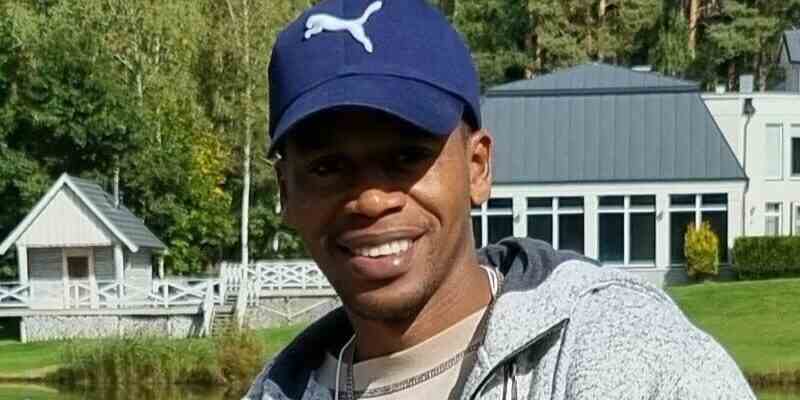Hamadi Mballo is now spending his days in the middle of the forest again, half an hour away from the eastern Polish city of Białystok and 20 kilometers from the Belarusian border. This time the forest is no danger for him, it gives him rest. Because he lives with friends, with his new family, as he calls them.
Mballo is from Senegal. A year ago he came to Poland from Russia via Belarus. A five and a half meter high border fence has been running through the forest since the end of July, guarded by armed soldiers. But refugees keep coming. Almost nobody wants to stay in Poland. Hamadi Mballo wants.
“I made friends here,” he says. The slender young man is sitting on the sofa in the family home that has taken him in. Someone keeps asking him to eat, but Mballo has no appetite. He recently had a nervous breakdown and his application for asylum was rejected. Hamadi Mballo’s friends and supporters have now started a petition. They want to prove, they write, “that not only cruelty and racism prevail in Poland.”
Such actions are rare in Poland. This is also due to the fact that there are so few asylum applications. Of 5,500 in the first half of 2022, 2,300 have just been approved, most were asked by people from Belarus. Refugees from other parts of the world are generally described as a danger by the right-wing populist government.
His brothers died while trying to escape – his family holds him responsible
Mballo says he cannot return to Senegal. The father died after being kidnapped and tortured by rebels in a bloody conflict in southern Senegal. The mother is also dead. Mballo is the eldest of four brothers. Two died fleeing through the endless forests between Belarus and Poland, they were 18 and 22 years old. One was bitten by a poisonous snake, the other was completely exhausted and drank water from the swamps. The result was diarrhea, vomiting and fever. “They tell you you need three to five days to get to the border,” says Mballo. “But it’s a stretch of two weeks.”
Hamadi Mballo tried to bury his brothers in the forest. He himself was eventually found by Polish border officials and taken to the hospital. His relatives cut off contact with him because they blamed him for the deaths of his brothers. The youngest of his brothers is in Libya and wants to flee across the Mediterranean to Europe.
Mballo is from Bambali. On his cell phone he shows a photo with the Bayern soccer player Sadio Mané – who comes from the same place. School was more important to him than football. He went to Dakar, graduated, received a scholarship to study in Russia. He took two brothers with him to look after them. But the scholarship was not extended, they could not find work, and the three had no money for the return journey.
After the hospital stay, Mballo was sent to three closed refugee camps in a row, hundreds of people in a small space, guarded by soldiers with dogs, he describes it. Thanks to a Polish aid organization, he finally found private accommodation.
In addition to his native French, Mballo also speaks Portuguese, English, learned Russian for a year and is now Polish. Next to him on the sofa is the book “Ébène” by Ryszard Kapuściński in French. “I’ve gotten that far,” he says with a smile, pointing to the bookmark in the middle of the book. He started teaching French at a school in Białystok. Volunteer, without money, he does not have a work permit. Yes, he senses racism on the street, there have been threatening situations, he says, and yet: “I feel at home here.”

